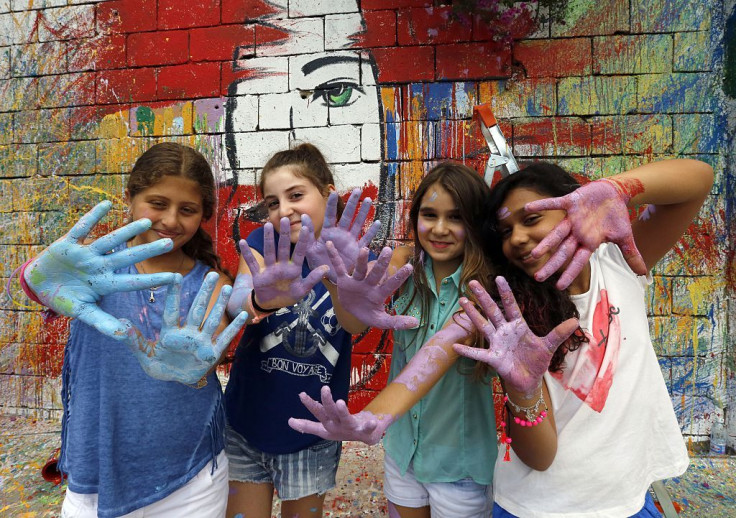Autism Awareness: What It’s Like To Be An Adult With Asperger’s Syndrome From Someone Who Knows First Hand

April is Autism Awareness Month, and now that one in every 68 children born in America is diagnosed with an Autism Spectrum Disorder (ASD), awareness of this condition has never been greater. We're only now becoming aware of ASD's reach, but that doesn't mean people in previous generations weren't affected. Today, the plight of children often makes headline news, but no one talks about what happens to these children once they grow up. Although adults with ASD have more experience living with the hurdles of their condition, everyday tasks and chores are nonetheless slightly more difficult.
Communication difficulties are one of the most universal characteristics of autism, and unfortunately this disability sometimes makes it difficult for adults with the condition to express themselves and share their stories. Finding an adult with autism, especially in the age of social media, is an easy task, but interviewing one is more difficult.
My first volunteer, an adult female, ruled out the idea of a conversation over the phone because she had difficulty following along when not in person. In addition, she also became easily overwhelmed with reading too much text, which made an email interview hard. Ultimately, my attempts at corresponding with her were thwarted because an extreme episode of anxiety made it difficult for her to focus. Although a second interviewee with autism also expressed interest in working with me, he stopped responding to my emails.
Finally, I was able to contact Andrew* a 51 year old man with Asperger’s Syndrome living in England. Andrew, who chose to keep his real identity anonymous, agreed to share his story with Medical Daily.

According to Autism Speaks, Asperger’s Syndrome is a type of ASD considered to be on the high functioning end of the spectrum. While around 40 percent of those with severe autism never speak, those with Asperger’s Syndrome don’t usually have language delays. Instead, they tend to have significant language skills which can often make their speech patterns differ from their peers and make them sound “robotic” or repetitive. In addition, those with Asperger’s Syndrome have difficulty with social cues and trouble making eye contact.
Andrew agreed to give Medical Daily a first-hand account of what it's like to be an adult with Asperger's Syndrome. Here is his story:
When were you diagnosed with Asperger’s Syndrome, and how did this diagnosis affect your life?
My own suspicions about being autistic/aspergic were confirmed when I was reading an article about Asperger's. The criteria for the condition was like a perfect fit for a lot of my life's experience. Each time I read an element I was thinking, “Yes, that sure is me as a kid,” or “Yes, that is me to the letter, that really is my kind of behavior pattern.” Later, I was professionally diagnosed with Asperger's.
I was diagnosed around five years ago after a long time in therapy for stress, depression, and anxiety. Life changed a lot for me after diagnosis as it brought a lot of the problems in my life into focus, such as relationships, dedication to specific tasks, and why my thinking patterns were always different [from others]. The diagnosis was actually a great relief, giving some coherence to my experiences and my behavior as a kid/ adult, such as liking routine, always wearing the same clothes, difficulties in social situations and disliking change.
What are some of the challenges of living with Asperger’s Syndrome?
I suffer from anxiety and depression, some of which can be brought on by pressure in social situations, such as loud music, bright lights in shops, crowds, and when I feel as though my personal space is invaded.
Language is always a problem in that I miss the nuances, intonations, and all the subtle clues that differentiate what someone says and what they actually mean. For example,“I REALLY want to do this” can be sarcastic, like it's the last thing I want to do. Or, it can be emphasized as like it is something that I must do for my own pleasure. This kind of thing totally escapes me.
As a kid, I had language problems and writing problems — I would write backwards.

What is it like for you to make friends and date?
Friendships are very difficult because I have trouble getting social cues, such as body language. I also mistrust a lot of people as I have been bullied before. I would like to be more sociable, but it’s not always easy when you’re playing a game and you’re not aware of the rules of the game.
I use the Airplane [a 1980 comedy film] level of humor a lot as it was a way to interact without actually knowing the full rules and using humor as a key to enter the “social world.” Many times I was nearly hit by friends when they asked me “Cigarette?” only to meet my deadpan Airplane response, “Yes, I know,” or “Yes, it is.”
Dating as an autistic person is a real crazy thing. Personally, I dislike bright lights and loud music in nightclubs so that made it difficult for a start. Then, the social behavior/language problems also can make it difficult. Using an online dating site can make it easier as it removes the meltdowns of being in a social situation and not being able to cope.
Do you have any bizarre behaviors?
I have developed coping mechanisms that enable me to get through activities, such as shopping and traveling. When I melt down, or go into sensory overload, I need to shut down, much like your Mac or Windows PC when updating information. It takes a moment to reboot, reinstall the operating system, and for me to get back to normal.
I always dress the same way; sneakers with white socks and a rock band t-shirt. I always clean my apartment on set days, always in a set pattern. Food must be organized in specific patterns in the freezer and fridge and labeled meticulously. Everything, like books, CDs, and videos must be ordered alphabetically and precisely.
I’m also naturally clumsy. In the kitchen, I can happily coat the walls and the back of the oven with tomato sauce or whatever I am stirring. When washing the dishes, more water ends up on me than over the dishes.
Do you have any exceptional fascinations or skills?
The “math” trait people always expect in autistic people was there to some degree, but this was more the fact I had an inspirational teacher as a kid. For me, patterns always held a fascination, such as the knight’s tour [a sequential chess move].
When I was in grammar school I was already a year ahead of the rest in math. When I got to high school I was bored as I had already done the work so I slept through the year in math. Later in school I had to teach a friend, who was going to Oxford to do math on a scholarship, the basics of probability and set theory. He realized that I understood math naturally and that my weakness was that I could not take the exams. I still have this kind of mindset — I use The Daily Telegraph cryptic crossword as a mental exercise workout in the morning. Seventeen minutes is my personal best.



























